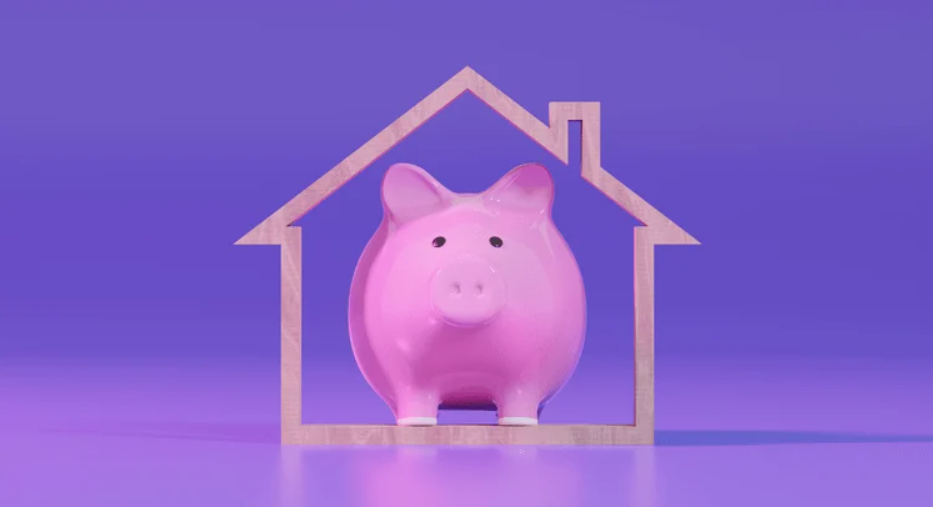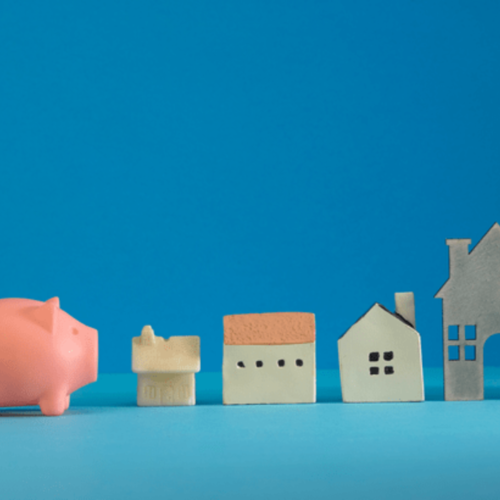Budgeting Tips for Renters Who Want to Buy
TL;DR
Renting doesn’t have to feel like throwing money away. With smart budgeting, strategic saving, and strong credit habits, you can turn your rental years into a powerful foundation for homeownership. Master your budget, tackle debt, and find extra savings to build your path to becoming a homeowner.

Throwing Away Rent! Discover Your Path from Renting to Owning!
For many, renting feels like a temporary state, a waiting period before the exciting leap into homeownership. But what if your rental years could be your most powerful tool for buying a house? Instead of seeing your rent check as money "thrown away," let's reframe it as a strategic training ground for your future as a homeowner.
This guide is for every renter who dreams of seeing "homeowner" on their tax forms. It’s about building smart habits and a solid financial foundation so you can make the move from tenant to owner smoother than you ever imagined.
Step 1: Master Your Money with a Bulletproof Budget
The first and most crucial step is to get crystal clear on your finances. A budget isn't about restricting yourself; it's about giving every dollar a purpose.
Track Everything: For one month, write down every single expense. Your rent, utilities, groceries, subscriptions, that daily coffee—everything. This is your reality check.
The 50/30/20 Rule: A great starting point for budgeting is the 50/30/20 rule. Allocate 50% of your income to needs (rent, bills), 30% to wants (dining out, entertainment), and 20% to savings and debt repayment. Adjust these percentages to fit your home-buying goals!
Automate Your Savings: This is the single most powerful tip. Set up an automatic transfer from your checking account to a separate, high-yield savings account the day you get paid. This money is for one purpose only: your future home. By "paying yourself first," you remove the temptation to spend.
Step 2: Tackle Debt and Boost Your Credit Score
Before a lender will give you a mortgage, they need to see that you can manage debt responsibly. Your debt-to-income ratio (DTI) and your credit score are key.
Pay Down High-Interest Debt: Focus on paying off credit card balances and personal loans. A lower DTI ratio will not only make you a more attractive borrower but will also free up more money for your savings.
Check Your Credit Reports: Get a free copy of your credit report from each of the three major bureaus (Equifax, Experian, and TransUnion). Dispute any errors you find—even a small mistake could lower your score.
Build a Strong Payment History: Pay every bill on time, every time. This is the single biggest factor in your credit score. Consider setting up automatic payments for all your bills to ensure you never miss a deadline.
Step 3: Find Extra Cash (Without Sacrificing Your Life)
Saving for a down payment can feel overwhelming, but small changes add up fast. You don’t have to live a bare-bones existence to make progress.
Slash Unnecessary Subscriptions: Review your monthly subscriptions. Do you really use all of them? Cutting just a few services could add an extra $50 to $100 to your savings each month.
Get a Roommate (if possible): If you live alone, consider getting a roommate. Splitting the cost of rent and utilities can dramatically boost your monthly savings.
Explore Down Payment Assistance Programs: Many states and local governments offer programs designed to help first-time homebuyers with their down payment or closing costs. Research these options—you might be surprised by what’s available!
Your Future Is in Your Hands
Moving from renting to owning is a journey, not a sprint. By mastering your budget, tackling debt, and finding smart ways to save, you are taking control of your financial future. Your time as a renter is not wasted; it’s a crucial phase of preparation.
Are you ready to turn your renting strategy into a path to homeownership? Let’s connect today and create a personalized plan to get you into your first home.
Frequently Asked Questions
Q: How can budgeting help me save for a home?
A: Budgeting helps you understand your spending and redirect money toward savings, making it easier to build your down payment.
Q: How important is my credit score when buying a home?
A: Very important. A strong credit score can help you secure better loan terms and lower interest rates.
Q: What are easy ways to save more money each month?
A: Cutting unused subscriptions, automating savings, and considering a roommate can significantly increase your monthly savings.
Q: Should renters pay off debt before trying to buy a home?
A: Reducing high-interest debt improves your debt-to-income ratio, making you more attractive to lenders.
Q: Are there programs that help renters buy a home?
A: Yes! Many states and local agencies offer down payment assistance and grants for first-time buyers, these can make homeownership more accessible.
By Alex Parmenidez, REALTOR® | Coldwell Banker Realty
Alex Parmenidez | Realtor® Licensed CT-MA-RI | Coldwell Banker Realty
196 Waterman St, Providence, RI 02906
C: (401) 426-4825 | O: (401) 351-2017
Check out this article next

Cómo ahorrar para el enganche de tu casa mientras rentas
Ahorrar para el enganche de una casa puede parecer una meta lejana y desafiante,
Read Article